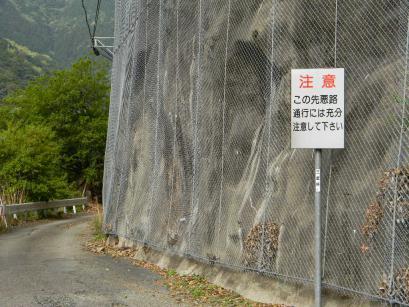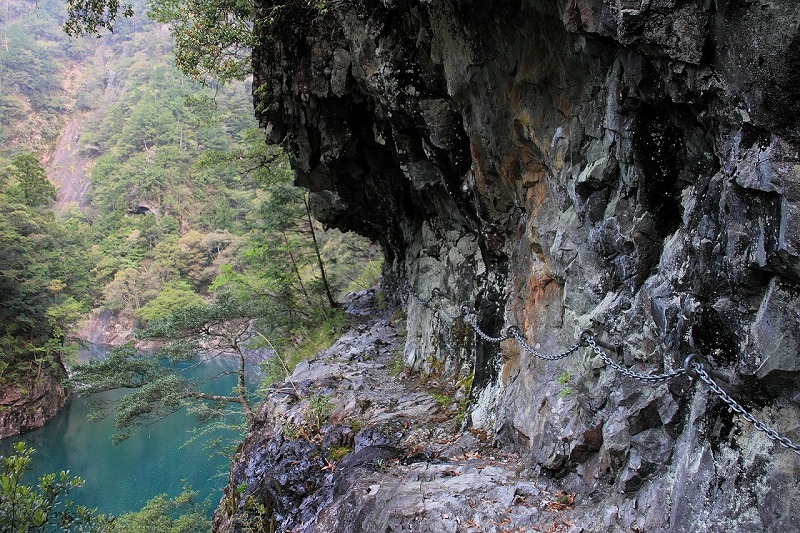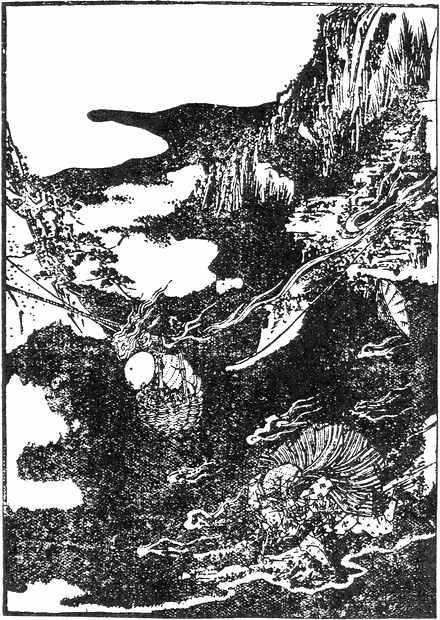The second element of traditional Chinese philosophy is fire, 火. Today's yōkai, while not so much a yōkai as an unusual phenomenon, comes from my birth prefecture.
I remember when I was very small, and would take day trips by car, we would drive through very sharp mountain roads, which winded and twisted and were perilously steep. Many were cut from a sheer cliff-side, and would have netting spread over it to prevent bits of falling rock from plummeting onto your car and crushing you to death.

Four-year-old-me would stare warily up at the high ledge, wrought with peril and fear that death was certain at any moment.
"Don't be afraid." My mother told me.
"Really?"
"Of course. Falling rocks are the least of your problems. You need to watch out for the Akurojin no Hi. That type of death is much worse."
They say absence makes the heart grow fonder, and if the "Traditional Japan Club" I and 40 other Japanese people now living in NC take part in, it's very true. Almost all of us assert that we grew up with no real interest, and even a slight annoyance with, the Japanese history and culture we were forced to memorise by our parents and at school, until we moved to America. After a while, being in a country with no festivals every weekend, Sengoku battlefields to visit, and yōkai lurking around every corner made me miss Japan very much. So now I make it a point of hobby (and eventually occupation) to study, write, and spread information about Japanese culture to everyone who doesn't have the access to it, either by language, location, or whatever the circumstance may be.
So please let me tell you about this somewhat obscure supernatural phenomenon from Mie Prefecture.
Akurojin no Hi (悪路神の火) literally means "the Bad Road God's fire."
As you saw in the photo above, the mountain roads of Mie are quite dangerous. But imagine what they were like several hundred years ago, when it was known as Ise Province, and there was no modern roads suitable for driving, or really, even walking.

You're ever-so-gingerly trudging along this steep mountain path. At night. And it's raining. There is no chain railing to grip. All you have is a tiny lantern to light your way, and it's starting to flicker out.
Suddenly, a little ways ahead of you, a flame bursts into light, warm and strong and low to the ground, as if someone is crouching to re-light their lantern. You head towards it, the flames bobbing steadily a foot or two from the ground. When you reach it, you're disturbed to see that there is no one there, no lantern, just this wobbling flame. Is it fox-fire? Carefully, you walk past it and make your way home. Relieved that you managed to make it past that strange apparition, not to mention surviving that absurdly dangerous journey.
Then you get sick. Very, very sick. And then you die.
Congratulation, you were cursed by Akurojin, the spirit of that terrible road.

You shouldn't have been on that road. And then, when he sent fire after you, you disrespected him.
If, for some reason, your grave illness doesn't actually kill you, I'll give you some advice for next time. Most people recommend that, when you see the Bad Road God's fire, you should run away immediately. This will show the proper amount of terror (ie, respect) to the Akurojin, and you won't get sick. Or at least, not sick enough to die.
But here's a little-known tip, directly from me to you. You don't want to just run away from the fires. It's dark, and raining, and that road is treacherous! You'll definitely slip and plummet to your death. But there is a way to avoid falling to death or getting cursed to death. When you see the Akurojin no Hi, throw yourself to the ground. Just prostrate yourself with all your heart, pressing yourself to the path, preferably away from the edge of the cliff. And just stay there. Keep laying on the ground until the fires pass. After that, you may then get up and continue your journey, though a bit muddy, at least alive and free to focus on careful footing instead of deathly illness and curses.
No comments:
Post a Comment